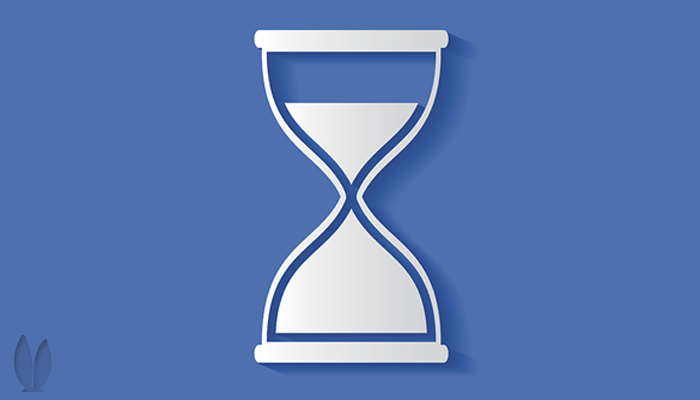I saw some interesting information on EntreLeadership’s site. It was a piece entitled “5 Ways to Take Control of Your Day” from June of this year.
The piece talked about a totally made-up disease called distractinonia, and we could all be suffering from it.
Distractinonia – the piece notes – is not about those who spend hours watching cat videos, playing Halo or Tweeting about lunch. Those who do this are worse than distracted, if you ask me. I think they’re off in la-la land somewhere and aren’t being very “intentional” about their workday.
And in today’s world, I think you really do have to be totally intentional about what you’re there for when you’re in front of your computer (or wherever it is that you do your work).
I’ve learned from years of working from home that I can’t dilly dally around about work. I need to have an agenda, a list and goals for the day – and stick to them. I can’t jump off track and cruise Facebook for 45 minutes or so. I can’t divert my attention to pay a few bills and check my bank statement online.
Allowing these diversions simply opens your mind to distractions. The 45 minutes on Facebook turns into more than an hour. You see a Facebook ad and end up ordering “something you’ve been looking for” …. You find an item in your bank statement that you don’t recognize and go off on a research tangent to figure it out … It’s easy to fall victim to these distractions.
After all, they are things you’d do anyway. The problem is failing to stay on task costs you valuable time which you should be spending on work.
And – regardless of the importance of checking your bank statement – work pays the bills so it SHOULD get your focused attention during work time.
You may even get distracted by things that are work-related. And you feel like these aren’t really distractions. But “work-related” doesn’t mean it is what you need to be working on now.
One day I saw a mistake in a blog post as I was making a publication list. Instead of making a note of the mistake and going back to it, I went into edit mode and fixed it. I realized that post was also on another blog and felt led to log in and fix it there too. I realized that the mistake revealed an inconsistency in the way something had been stated. Gee, that could have happened in lots of posts. Soon I found myself deep in a rabbit hole.
Did my publication list get done? Yes – eventually. But not in the requested time frame. It would have been simple for me to make a note of the mistake, finish my publication list and send it off – and then go back to search for any mistakes and make the corrections.
So when you feel like there are never enough hours in the day to get things done – no matter how hard you work – examine your particular case of distractinonia to see where the root of your productivity sucks are.
According to EntreLeadership’s piece, there are very common work-related productivity-sucks that we must combat to make the most of our work days.
Multitasking, Meetings, Socializing, Talky Teammates, Emails
Multitasking is something that is supposed to help us save time. (There is probably even an app for it.) Its sounds impressive if we can do it, right?
Well – not so much. Actually, few of us are good at it. Be honest about your brain’s ability to handle 2 or 3 things at one time – much less the 5 or 6 things that we often pile on ourselves when multitasking. The truth is that you will end up stressed and less focused – and therefore less productive.
It helps to begin each morning by WRITING DOWN AND PRIORITIZING your goals for the day. Focus on one task at a time. Mark them off as you complete them. Focus through the task until the end.
Meetings aren’t the problem.
It is good to get together to work out project details, hear updates, and communicate priorities. In fact, it is a necessary part of doing business. The problem starts if you’re not “intentional” about your meetings. In other words, you just sort of fly by the seat of your pants and let the meeting unfold. That is simply a recipe for disaster. If there are any goals for the meeting, they will not likely get accomplished without an agenda. And what about keeping to meeting time parameters? You MUST have a time manager with an iron hand. Decide how long will be spent on each agenda item and plan offline follow-up or assign it out when you reach the limit – or just make sure you get your stuff done. It can be done. It’s just critical to stay on topic and on-task.
And socializing isn’t a problem either.
That is as long as it isn’t allowed to get out of control. According to OfficeTime.net, 16% of those surveyed said that they spend between 1 and 2 hours a day engaging in social conversation with coworkers. Yikes! If you tally the man hours associated with that, you will cringe. If you’re a person who tends to spend too long socializing or making small talk, give yourself time limits and stick to them. Schedule socializing on your calendar as an event that only lasts for a few minutes – not a few hours. Realize that in socializing, you’re not just deflating your own productivity, but you’re also dragging coworkers down with you.
It is a fact that socialization is an important part of team building. So if you’re a person who doesn’t do this, put it on your schedule. Just limit it – like your more “social” coworkers – to a few minutes per day.
Talky Team Members
Of course, you’re going to have a team member or two who are really chatty. And it may be that they love to chat with you. They may lure you into the conversation by asking for a “quick question.” The problem is that their quick question takes an hour, and after that hour you don’t even know what the quick question was.
If it seems that this person often has “quick questions,” it may help to schedule a time for a weekly meeting with him or her. Limit the meeting time. If this person comes to you with a “quick question” request outside of this meeting time, refer back to that meeting, noting that you can cover that question at your weekly meeting. Of course, if this person has an emergency, you can deal with it immediately.
Emails
There are few emails that can’t wait. We’ve developed the perception that each of the emails that we get is much more important than most actually are. Think about it. If it were an emergency, they would call – or at least text.
Email, believe it or not, is no longer the immediate response communication format.
Many who’ve conquered time management only answer email 2 times per day (one in both the am and pm) – during time slots which they have scheduled on their calendars. Some even turn their email off on the weekends or during the evenings or family events so they aren’t tempted to respond.
According to management expert Peter Drucker, “Time is the scarcest resource, and unless it is managed, nothing else can be managed.”
I would say that’s true. Avoid distractions, respect your time and the time of others.
Your productivity will soar!
Source: EntreLeadership Team [www.entreleadership.com]






